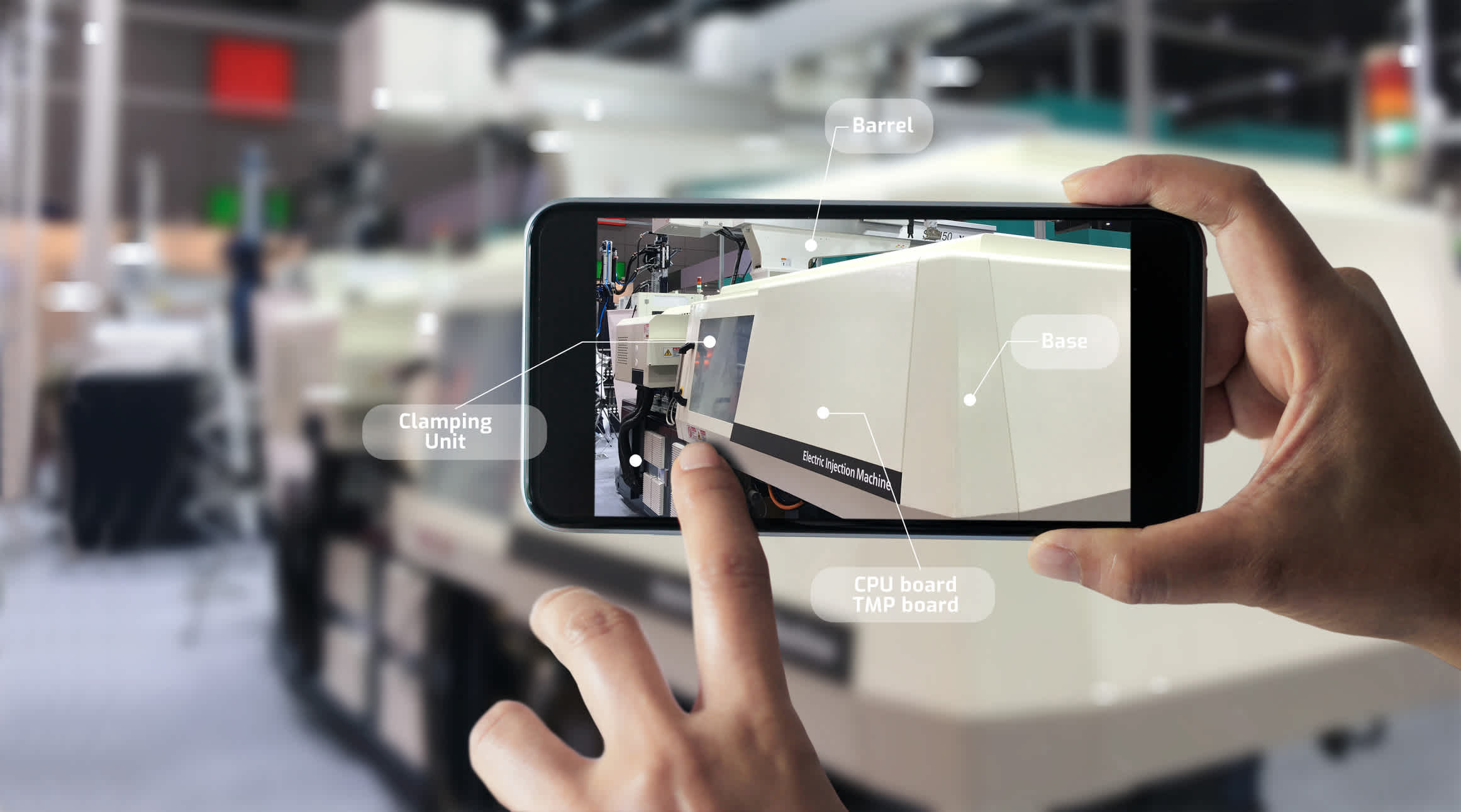//
Jul 28, 2023
Breaking the Mold: Innovative B2B Manufacturing Marketing Strategies
In today's fiercely competitive business landscape, B2B manufacturing companies face increasing challenges in reaching their target audiences and standing out among competitors.
Traditional marketing approaches may no longer suffice to capture the attention of discerning buyers. As the digital era unfolds, embracing innovation becomes a necessity for looking to thrive in the market.
In this blog post, we will explore the concept of innovative marketing in the B2B manufacturing space and delve into various strategies that have proved successful in breaking the mold. Let's discover how these innovative approaches can pave the way to a new era of growth and opportunity.
The Power of Innovation in B2B Manufacturing Marketing

Innovation has always been at the core of progress, driving society forward through breakthroughs, inventions, and new ideas. In the realm of marketing, innovation serves as the catalyst that propels businesses to the forefront of their industries. For manufacturing companies, embracing innovative marketing strategies is not merely an option; it's a prerequisite for surviving and thriving in today's hyper-competitive market.
Traditional marketing approaches that once proved effective are losing their potency. B2B buyers have evolved, becoming more discerning and tech-savvy. They expect personalized experiences, relevant content, and seamless interactions throughout their buyer's journey. To meet these expectations, B2B manufacturers must break free from the confines of conventional marketing and venture into uncharted territories.
Connecting with the B2B Buyer
The modern B2B buyer is no longer satisfied with or generic marketing collateral. They seek meaningful connections with brands that understand their needs and challenges. Innovation in B2B manufacturing marketing lies in crafting campaigns that speak directly to the hearts and minds of the target audience.
Navigating the Competitive Landscape
in the B2B manufacturing sector is fierce. Companies vie for the attention of a limited pool of potential clients, and the battle for market share can be intense. To stand out, B2B manufacturers must differentiate themselves through innovation and creativity.
Breaking the mold doesn't necessarily mean reinventing the wheel. It involves a fresh perspective on how marketing can address specific industry pain points and client needs. It could be as simple as using to humanize a brand or leveraging data to deliver personalized communications that resonate with individual clients.
Inspiring Trust through Forward Thinking
Innovation in B2B manufacturing marketing serves as a powerful tool for instilling trust and confidence in potential buyers. Forward-thinking and innovative approaches demonstrate a commitment to continuous improvement and customer-centricity, values that resonate deeply with B2B clients.
When prospective clients encounter a B2B manufacturing company that embraces cutting-edge technologies, creative campaigns, and industry-leading practices, they feel reassured that the company has its finger on the pulse of the market. This reassurance lays the foundation for building lasting relationships, which are essential in the B2B landscape where long-term partnerships and repeat business are paramount.
Embracing a Culture of Innovation
Innovative B2B manufacturing marketing strategies are not isolated events; they stem from a company-wide culture that values creativity, continuous learning, and a willingness to take calculated risks. It requires fostering an environment where ideas are encouraged, and failures are viewed as opportunities for growth and learning.
Leadership plays a crucial role in driving innovation within a B2B manufacturing organization. By championing a culture of curiosity and embracing change, executives set the tone for the entire organization. When employees feel empowered to experiment and contribute their ideas, innovative marketing strategies can emerge from all corners of the company.
Moreover, collaboration between marketing teams, product development, and customer service is vital. Each department holds valuable insights that can inform marketing strategies and ensure they align with the company's overall vision and objectives. A cohesive approach that integrates marketing efforts with the company's core values and offerings yields the most impactful and sustainable results.
Innovative B2B manufacturing marketing strategies are the key to unlocking the full potential of B2B businesses in an ever-changing landscape. By connecting with evolving B2B buyers, navigating the competitive landscape, inspiring trust, and embracing a culture of innovation, B2B manufacturers can pave the way to a future of growth and success.
Understanding the Market and Audience

Innovation in B2B manufacturing marketing begins with a deep understanding of the market and target audience. Conducting comprehensive market research and customer analysis is vital to identify unique opportunities and tailor marketing efforts accordingly.
Understanding the pain points, needs, and preferences of B2B manufacturing buyers allows companies to develop campaigns that resonate on a personal level. Some common pain points manufacturing businesses experience when generating leads include:
Niche Targeting: Manufacturing industries can be highly specialized, and decision-makers may struggle to find inbound marketing strategies that effectively target their specific niche audience. Generalized marketing efforts may not resonate with the right people or fail to capture the attention of potential clients.
Lack of Content Strategy: Inbound marketing relies heavily on valuable content creation to attract and nurture leads. Decision-makers in the manufacturing sector might face difficulties in developing a robust content strategy that caters to the informational needs of their audience and establishes their authority in the industry.
Limited Online Presence: Some manufacturing companies might have a limited online presence or an outdated website. Decision-makers may face the challenge of revamping their digital presence and optimizing their website for lead generation and conversions.
Competition from Established Brands: The manufacturing sector can be highly competitive, with well-established brands dominating the market. Decision-makers may find it hard to stand out and capture the attention of leads when they are up against larger and more recognized competitors.
Tracking ROI and Attribution: Measuring the return on investment (ROI) of inbound marketing efforts and attributing leads to specific marketing activities can be tricky. Decision-makers may need to implement effective analytics and tracking mechanisms to understand which strategies are driving results.
Embracing Technology for Enhanced Marketing

In the age of digital transformation, technology plays a pivotal role in modern marketing strategies. For B2B manufacturing companies, integrating emerging technologies can be the key to unlocking new possibilities. (AI), Virtual Reality (VR), and Augmented Reality (AR) are among the cutting-edge technologies that hold immense potential in the B2B marketing realm.
AI-driven chatbots, for instance, offer an opportunity to deliver real-time customer support and personalized interactions. B2B manufacturing companies can implement chatbots on their websites to address frequently asked questions and guide potential clients through the buyer's journey. This not only streamlines the customer experience but also demonstrates a commitment to embracing technological advancements.
Furthermore, VR and AR have revolutionized product demonstrations and trade show experiences. Prospective buyers can virtually explore manufacturing facilities or interact with products, making it easier for B2B manufacturers to showcase their offerings even in remote locations.
Thinking Outside the Box with Creative Inbound Campaigns
Innovative B2B manufacturing marketing campaigns transcend the mundane and embrace the extraordinary. These campaigns go beyond the traditional sales pitches and product-centric approaches. Instead, they captivate audiences with a sense of wonder, originality, and creativity.
By embracing innovative storytelling and creative content, manufacturers can build robust emotional connections with their clients and prospects, forging lasting relationships that go far beyond a transactional exchange.
The Power of Storytelling in B2B Manufacturing Marketing

Storytelling is a timeless art that resonates with people on a fundamental level. It taps into our emotions, allowing us to connect with ideas, concepts, and brands at a deeper level. In the context of B2B manufacturing marketing, storytelling humanizes complex products and services, making them relatable and compelling to potential buyers.
Take, for example, a B2B manufacturer of industrial automation systems. Instead of merely presenting the technical specifications and features of their products, they can craft a narrative that showcases how their automation solutions transformed the productivity and efficiency of a struggling factory. Through a captivating story, they illustrate the challenges faced by the factory, the journey towards implementing the automation solution, and the remarkable outcomes achieved, such as increased output and reduced downtime.
By immersing the audience in a story, the manufacturer evokes empathy and understanding. Prospective clients can relate to the factory's struggles and aspirations, and they envision themselves in a similar transformational journey. This emotional connection not only fosters trust but also positions the manufacturer as a solution-driven partner invested in the success of their clients.
Creative Content that Engages and Inspires
Beyond storytelling, creative content is a driving force behind innovative B2B manufacturing marketing campaigns. From visually stunning videos to interactive microsites, creative content goes beyond the conventional to leave a lasting impact on the minds of the audience.
One powerful tool in the creative content arsenal is . Manufacturers can produce high-quality videos that showcase their products in action, highlighting their capabilities and real-world applications. These videos can be presented in engaging formats, such as animated explainers, customer testimonials, or virtual factory tours, offering an immersive experience to viewers.
For instance, a B2B manufacturer of cutting-edge 3D printing technology can create a captivating video that demonstrates the process of transforming a digital design into a physical prototype. The video can show the intricate layers of material being laid down by the 3D printer, culminating in the final product taking shape.
This visually compelling content not only showcases the technology's capabilities but also sparks curiosity and excitement among potential clients about the possibilities of integrating 3D printing into their own workflows.
Interactive content is another creative approach that fosters engagement and interactivity. Manufacturers can develop interactive product configurators, where clients can customize products based on their unique requirements. This hands-on experience empowers prospects to explore various options and find the perfect solution for their needs, resulting in a sense of ownership and a higher likelihood of conversion.
The Impact of Emotional Connections on B2B Buyers
In the B2B world, purchase decisions are often influenced by rational factors such as product features, pricing, and ROI. However, play a crucial role in the decision-making process as well. B2B buyers are humans, and like any consumer, they are influenced by emotions, aspirations, and the desire to work with brands they can trust.
Innovative B2B manufacturing marketing campaigns that tap into emotions create a memorable and differentiated brand experience. When clients and prospects feel emotionally connected to a brand, they are more likely to remain loyal customers and even advocates who recommend the manufacturer to others.
Building emotional connections can also lead to long-term partnerships. are more likely to choose manufacturers who understand their needs, values, and pain points. When a manufacturer uses innovative marketing campaigns to demonstrate their understanding and empathy, it strengthens the bond between the two entities, leading to repeat business and mutually beneficial relationships.
Measurement and Success of Innovative Campaigns

The success of innovative B2B manufacturing marketing campaigns lies not only in their creative brilliance but also in their measurable impact. Data-driven analytics allow manufacturers to track the performance of these campaigns, providing valuable insights into what resonates with the audience and what can be improved.
Engagement metrics, such as click-through rates, time spent on content, and social media shares, help manufacturers gauge how well their innovative campaigns are capturing the attention of their target audience. Conversion rates and lead generation data reveal how effective the campaigns are at driving prospects down the sales funnel.
By continually analyzing the data, manufacturers can fine-tune their innovative campaigns, maximizing their impact and return on investment. Moreover, the insights gained from these campaigns can inform future marketing strategies, helping manufacturers stay at the forefront of innovation and remain relevant in a dynamic market.
Innovative B2B manufacturing marketing campaigns are a powerful means of building lasting relationships with clients and prospects. By embracing storytelling and creative content, manufacturers can tap into emotions, foster trust, and differentiate themselves from competitors.
These campaigns go beyond the ordinary, capturing the imagination of the audience and leaving a lasting impression. The emotional connections formed through innovative marketing efforts can propel B2B manufacturers to new heights of success, as they continue to inspire, engage, and thrive in an ever-changing business landscape.
Five Reasons You Should Be Doing Inbound Marketing

has emerged as a game-changing approach in the B2B manufacturing sector, perfectly complementing innovative marketing strategies. As B2B buyers evolve, their preferences and expectations have shifted, necessitating a more personalized and value-driven marketing approach.
Inbound marketing addresses these changing dynamics by focusing on creating valuable content and attracting potential buyers organically, positioning B2B manufacturing companies as trusted thought leaders in their industry.
1. Valuable Content Creation:
At the heart of inbound marketing lies the creation of valuable, informative, and that speaks directly to the needs and pain points of the target audience. For B2B manufacturers, this means crafting content that goes beyond product specifications and sales pitches. Instead, the focus shifts to producing content that addresses industry trends, shares valuable insights, and offers solutions to the challenges faced by prospects.
By sharing expert knowledge through blogs, eBooks, whitepapers, and informative guides, B2B manufacturers position themselves as reliable resources in their field. Prospective buyers are more likely to engage with a company that demonstrates its expertise and commitment to sharing valuable information, rather than one that solely promotes its products.
2. Establishing Thought Leadership:
Inbound marketing provides a platform for B2B manufacturing companies to showcase their industry knowledge and innovative ideas. By consistently producing high-quality content that delves into the latest trends, emerging technologies, and best practices, manufacturers can establish themselves as thought leaders in their niche.
Thought leadership goes beyond promoting individual products; it involves guiding prospects through the complexities of their industry and offering valuable insights that aid decision-making. When potential clients perceive a company as a thought leader, they are more inclined to consider them as a trusted partner for their manufacturing needs.
3. Addressing Customer Pain Points:
B2B buyers often seek solutions to specific challenges or issues they face in their operations. Inbound marketing allows manufacturers to identify these pain points and tailor content to address them directly. Whether it's streamlining supply chain logistics, enhancing product quality, or adopting sustainable practices, the content-driven approach of inbound marketing speaks directly to the needs of potential buyers.
By addressing these pain points in a genuine and helpful manner, B2B manufacturers position themselves as problem solvers. This builds confidence and trust in the brand, making it more likely for prospects to choose them as their preferred solution provider.
4. Nurturing Leads and Building Trust:
Inbound marketing is not solely about attracting leads; it's also about nurturing them throughout their buyer's journey. By providing valuable content at each stage of the buying process, manufacturers guide prospects from initial awareness to making an informed purchase decision.
Through automated, personalized email campaigns, and targeted content, B2B manufacturing companies can stay engaged with potential clients and offer the information they need at the right time. This nurtures leads, keeps the brand top-of-mind, and builds trust, all of which are critical in the longer B2B sales cycles.
5. Increasing Conversion Rates:
Inbound marketing's content-driven approach contributes to higher conversion rates by attracting more qualified leads. When potential clients find valuable, relevant content that addresses their specific needs, they are more likely to convert into high-quality leads. These leads have already established a level of trust with the company, making them more receptive to engaging in further discussions and exploring potential partnerships.
As inbound marketing focuses on attracting organic traffic and engaging interested prospects, the leads generated tend to be more genuine and relevant to the company's offerings. This targeted approach saves both time and resources, leading to improved conversion rates and a higher return on marketing investments.
Inbound marketing aligns seamlessly with innovative B2B manufacturing marketing strategies, enabling manufacturers to connect with their audience in meaningful ways. By creating valuable content, establishing thought leadership, addressing customer pain points, nurturing leads, and increasing conversion rates, inbound marketing helps B2B manufacturers navigate the evolving landscape of customer expectations.
Boost visibility, create engagement, increase leads and make more money with Inbound Marketing
Follow our free, easy-to-follow video series designed to show how to attract and convert more leads— and make more money with these tactics.
Overcoming Challenges and Risks
Implementing innovative marketing strategies in the B2B manufacturing sector may come with its own set of challenges and risks. One such challenge is the resistance to change, especially in traditional industries with well-established practices. Convincing stakeholders to embrace innovation may require careful planning, clear communication, and the presentation of concrete benefits.
Moreover, adopting new technologies and approaches may involve financial investments and resource allocation. It is essential for B2B manufacturers to conduct a thorough cost-benefit analysis and choose strategies that align with their goals and budget.
However, the potential rewards of innovation far outweigh the risks. Companies that dare to pioneer new marketing approaches can gain a significant competitive advantage, attract forward-thinking clients, and position themselves as leaders in their industry.
Conclusion
Innovation in B2B manufacturing marketing is no longer a luxury; it is a necessity for sustainable growth and success. By breaking the mold and embracing creativity, technology, and customer-centricity, B2B manufacturing companies can forge deeper connections with their audiences and drive remarkable results.
As the marketing landscape continues to evolve, those who choose to innovate will shape the future of the industry, leaving a lasting impact on both their business and the clients they serve.
At Watermark, we understand the transformative power of innovative B2B manufacturing marketing strategies. Let our team of experts guide you on your journey to success. and discover how we can help your manufacturing business thrive in the digital age.
Together, let's break the mold and redefine what's possible.
Download our Inbound Marketing for Manufacturers white paper now!
Boost visibility, create engagement, increase leads and make more money with Inbound Marketing
Inbound marketing is a powerful strategy helping manufacturers reach their target audience, generate leads, and build relationships with customers. If you're not using inbound marketing, you're missing out on opportunities to grow your business.







